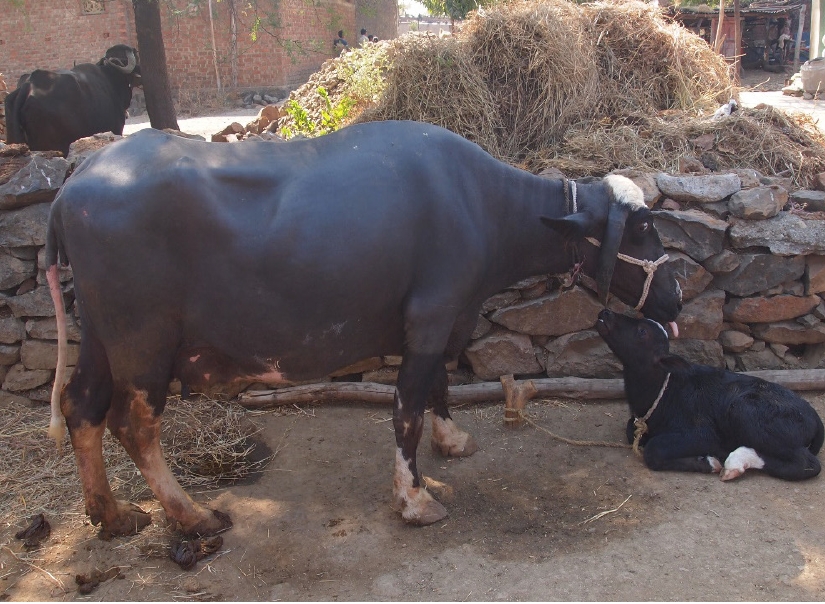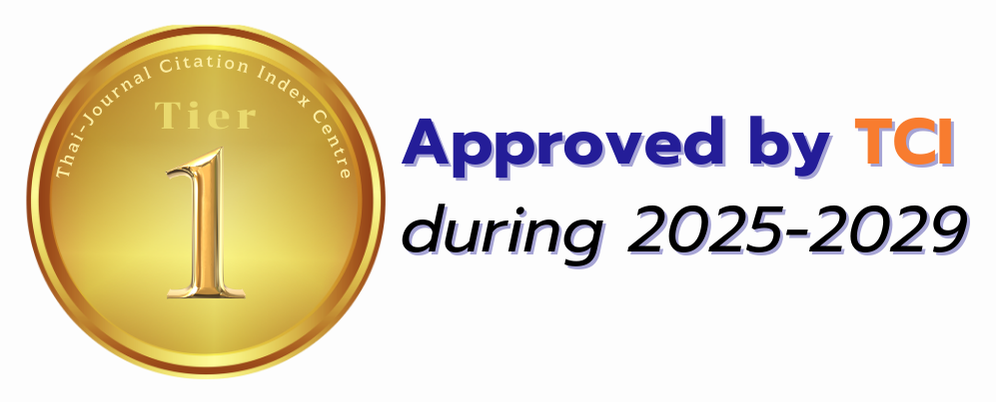Colostrum feeding induced alkaline indigestion syndrome in riverine buffaloes- clinical assessment and therapeutic management
DOI:
https://doi.org/10.56825/bufbu.2022.4113158Keywords:
Bubalus bubalis, buffaloes, alkaline indigestion, colostrum, riverine buffaloes, nervous signs, treatmentAbstract
The present study was undertaken to elucidate the alkaline indigestion syndrome in riverine buffaloes caused by inadvertent colostrum feeding, clinical pattern and its therapeutic management. Fifteen recently parturited buffaloes with history of feeding average 2.96 kg (1 to 5 kg) of colostrum immediately after parturition followed by sudden onset of anorexia, decrease in milk yield and nervous signs were investigated. Clinical examination showed normal body temperature (100.26±0.42 vs 100.62±0.18), respiration (23.73±3.53 vs 24.13±0.66) and heart rate (57.26±3.30 vs 53.20±1.79) compared to healthy buffaloes. Examination of rumen revealed impaction with highly significant (P<0.01) reduction in rumen motility (0.80±0.24 vs 3.80±0.17 per five minutes). Similarly, highly significant (P<0.01) increase in rumen pH (8.10±0.16 vs 6.25±0.07) and decrease in protozoal density (5.00±0.88 vs 32.93±1.72) with sluggish (+) to no (-) protozoal motility was observed in ailing buffaloes. Haematological analysis showed normal blood profile with significant (P<0.05) increase only in neutrophil count (51.60±5.1 vs 42.06±3.4). Prominent clinical signs of anorexia, congested conjunctival mucosae, decreased milk yield and varied nervous signs like restlessness, head pressing, staggering gait, incoordination, circling, convulsions, dummy syndrome, apparent blindness and coma were observed in affected buffaloes. Postural abnormalities like sternal / lateral recumbency and lateral deviation of neck were also observed in two buffaloes. All the ailing buffaloes were treated with Dextrose Normal Saline, single dose of preparation containing calcium, phosphorus and magnesium, vitamin B complex, antihistaminic, sedatives, laxatives, pre, probiotics, and oral antibiotics. All the treated buffaloes showed satisfactory improvement from 1st to 3rd day with complete clinical recovery by 4.93 (3 to 9) days of treatment. Buffalo owners should be made aware of unscientific practice of colostrum feeding in adult animals and accidentally intoxicated buffaloes could be successfully treated with the standardized treatment protocol.
Downloads
Metrics
References
Davis, G.K. and H.F. Roberts. 1959. Urea toxicity in cattle. Fla. Agr. Exp. Sta. Bull., p. 611.
Davidovich, A., E.E. Bartley, T.E. Chapman, R.M. Bechtle, A.D. Dayton and R.A. Frey. 1977. Ammonia toxicity in cattle. II. Changes in carotid and jugular blood components associated with toxicity. J. Anim. Sci., 44(4): 702-709. DOI: 10.2527/jas1977.444702x
Haque, M. and S. Dey. 1989. Management of urea poisoning in a heifer. Indian Vet. J., 75: 279-280.
Hoflund, S. 1967. Animal diseases associated with the use of deteriorated feedstuffs under Swedish conditions. Veterinary Bulletin, 37: 710-717.
Kehoe, S.I., B.M. Jayarao and A.J. Heinrichs. 2008. A survey of bovine colostrum composition and colostrum management practices in Pennsylvania dairy farms. J. Dairy Sci., 90(9): 4108-4116. DOI: 10.3168/jds.2007-0040
Kulkarni, S. and S. Kulkarni. 2002. Urea poisoning in a buffalo heifer. Buffalo Bull., 21(2): 27-28. Available on: https://kukrdb.lib.ku.ac.th/journal/BuffaloBulletin/search_detail/result/286074
Misra, S.K. and R.C. Tripathy. 1963. Studies on the rumen liquor from cattle feed exclusively on paddy straw. Indian Vet. J., 40: 496-499.
Mohan, G.C., A.C. Kumar and B.R. Naik. 2015. Effect of rumen fermentative disorders on physiological parameters in buffaloes. International Journal of Veterinary Science, 4(1): 10-14.
Nagrajan, V.V. and S. Rajmani. 1973. Alkaline indigestion and rumen putrefaction in a cow. Indian Vet. J., 50: 1147-1151.
Osebold, J.W. 1947. Urea poisoning in cattle. North American Veterinarian, 28: 89-91.
Raboisson, D., A. Ferrieres, M.C. Nicot, F. Enjalbert and F. Schelcher. 2012. Experimental soybean meal intoxication in cattle. Journal of Veterinary Internal Medicine, 26(2): 393-401. DOI: 10.1111/j.1939-1676.2011.00884.x
Radostits, O.M., C.C. Gay, K.W. Hinchclif and P.D. Constable. 2010. Veterinary Medicine A Textbook of the Diseases of Cattle, Horses, Sheep, Pigs and Goat, 10th ed. Saunder Elsevier Philadelphia. USA. p. 293-352.
Reece, W.O., H.H. Ericson, J.P. Goff and E.E. Uemura. 2015. Ruminant digestive physiology and intestinal microbiology, p 522-531. In Dukes Physiology of Domestic Animals, 13th ed. Wiley Blackwell, USA.
Sharma, S.K., M. Joshi, K. Kumar and Parmjeet. 2017. Acute urea poisoning in buffaloes: Case study. Research and Reviews Journal of Veterinary Sciences, 3(1): 1-3.
Singh, A. and S.P. Ahuja. 1993. Individual variation in the composition of colostrum and absorption of colostral antibodies by the precolostral buffalo calf. J. Dairy Sci., 76(4): 1148-1156. DOI: 10.3168/jds.S0022-0302(93)77443-3
Snedecor, W.G. and W.G. Cochran. 1994. Statistical Methods, 10th ed. Iowa State University Press, Ames, Iowa, USA.









.png)








